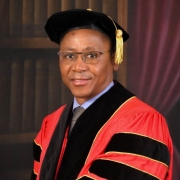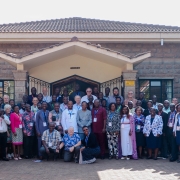Biblical Illiteracy ‘Utmost Problem’ Facing Global Evangelicalism, says Dr. Thomas Schirrmacher
The biggest crisis facing the evangelical, global church today is the growing lack of biblical literacy worldwide, according to Thomas Schirrmacher, the newly elected secretary-general of the World Evangelical Alliance.
“Our biggest problem is that Bible knowledge is fading away,” Schirrmacher told The Christian Post. “This is the utmost problem we have beyond all theological differences, financial problems, and political questions.”
Schirrmacher, who studied theology in Switzerland and the United States, and serves as the WEA’s Associate Secretary General for Theological Concerns, said that in the Western world “more and more kids that come from evangelical families are not really rooted in the Bible,” and many of them leave the faith.
“In the Western world, the percentage of kids from Christian families who stay in the faith is going down,” he said.
The number of young people leaving the faith in Western countries is “counteracted” by people becoming Christians as young adults in other parts of the world, according to Schirrmacher.
However, these young Christians also lack deep biblical knowledge and “only know about the Bible what they learned from their conversion,” he said. In rural areas, young Christians are often tasked with leading large churches despite their lack of biblical and theological knowledge.
“So many people are becoming believers that the one who has been a believer the longest becomes the leader of the church,” Schirrmacher said. “That might be three years. Short for us, but long for them. We have such a high conversion rate worldwide, that it’s extremely difficult to follow up with discipling, with teaching, with Bible knowledge. The result is that people know much less and are more much more open to secularism and strange things like the ‘health and wealth’ gospel.”
According to the State of the Bible 2020 report released by the Barna Group and the American Bible Society, U.S. adults who say they read the Bible daily dropped from 14% to 9% between early 2019 and 2020.
The study found that the proportion of Americans who read the Bible daily also fell to fewer than one in 10 (9%), the lowest number on record during the 10 years of the State of the Bible research study.
Schirrmacher told CP that WEA seeks to combat the “crisis” of insufficiently trained church leadership by providing a recognized, global standard for outcome- and impact-based assessment.
“This is just one thing we do, but it’s extremely important,” he stressed. “Because if evangelicals don’t know the Bible any longer, it doesn’t make any sense that we are a Bible movement. We have nothing else. We have no pope, we have no structure that keeps us together, no matter what we believe. We need to sit down and study the Bible, know the Scriptures, and be properly equipped for ministry.”
Schirrmacher will replace Bp Efraim Tendero as head of the WEA on March 1, 2021.
Passionate about religious freedom worldwide, Schirrmacher previously served as a member of the Religious Liberty Commission, developed the International Institute for Religions Freedom, built up WEA’s Office for Intrafaith and Interfaith Relations, is chair of WEA’s Theological Commission, and WEA’s Ambassador for Human Rights.
He told CP that as the new head of the WEA, which represents over 600 million evangelical Christians worldwide, he hopes to work toward “much closer solidarity” between wealthy countries that offer a great amount of religious freedom and countries where Christians are under pressure.
“I have been engaged with persecuted Christians more or less all my life,” he said. “There is a religious freedom crisis around the world, and many persecuted Christians have the impression they have been forgotten. Now, that may not be true, we may mention them during a day of prayer, but they don’t know that. Many feel forgotten. Working toward solidarity with believers is truly high on my agenda.”
Schirrmacher said he also hopes to “normalize” that the WEA, the second-largest Christian and religious body of the world, would “stand up in all kinds of issues” in relation to the U.N. and public issues. Evangelicals, he said, have always been on the frontlines pushing for religious freedom.
“On a global scale, we are one of the largest actors,” he stressed. “The WEA is known for mission, evangelism, religious freedom, of course. But the main reason we have to do it is because of evangelism. At the moment, most people that become Christians are doing so in countries that do not have religious freedom or human rights. We cannot go on with evangelism and not be there for them.”
“That will be a vital goal for me, that the people within the evangelical community and outside understand that we are not one day pious people that evangelize and the next day politicians that want to change the world for good. These two things come out of one hand.”
In an increasingly polarized society, Schirrmacher also emphasized the importance of unity, stressing that the “biggest obstacle” to the spread of the Gospel are divisions within Christianity.
“We need to discuss much more and long for what is the DNA, I would say not only of evangelicalism but of Christianity,” he said. “What we have together is the Bible, Jesus, and the Gospel.”
“We need to work together so that we do not fight each other when preaching the Gospel,” he said.
“We need to invest a lot of time into theology again, not to revive denominationalism, but to revive that the alternative is not just nothing,” he said, lamenting the “constant splitting of churches” within evangelicalism.
“Our goal has to be that all of Christianity accepts the same DNA,” he said. “The fading away of thousands of different theologies that divide us from each other make sense if we then sit down and find the common DNA. The danger is, we cannot allow these central teachings of Christianity to fade away together with minor topics. Then, there will be nothing left.”




